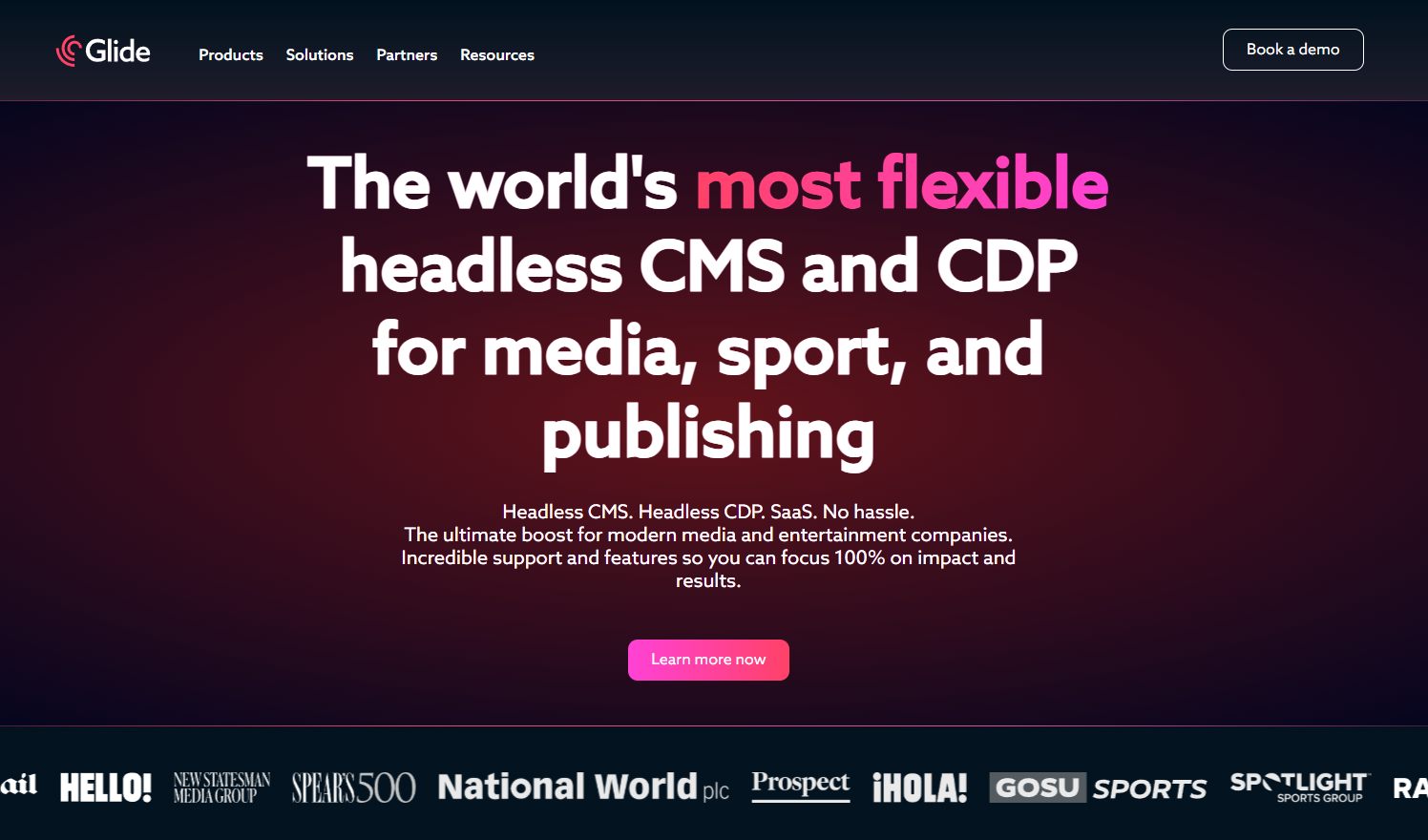This article is written within the framework of Möbius, a European Commission-funded initiative that explores the impact digital prosumers have on reading and writing habits.
BookTok is one of the most interesting innovations from the digital readership space. BookTok is a trend and hashtag on TikTok with such impact it won the FutureBook Person of the Year Award at the FutureBook conference in 2022.
The hashtag has rapidly eclipsed its predecessors — Instagram’s Bookgram and YouTube’s BookTube. It’s so impactful that the Frankfurt Book Fair, the world’s largest book trade fair, dedicated an entire stage to it in 2022, giving BookTokers the chance to film themselves at the BookTok Creation Corner. The book fair will feature a BookTok award in 2023.
BookTok has attracted more than 85 billion views so far, without any sign of slowing down. Books becoming viral through BookTok have seen an up to ninefold increase in sales. At the beginning of 2022, BookTok contributed to a 30% growth in print book sales for the Young Adult (YA) genre in the US, part of a 9% uptick in overall print book sales.
Standing Out
BookTok’s focus on participant identity sets it apart from other Gen Z trends. For BookTokers, books aren’t merely products but part of a clearly defined way of perceiving themselves.
The connection between Madeline Miller’s Song of Achilles and the BookTok community helps demonstrate this connection. Song of Achilles became a bestseller decades after it was originally published, being deemed a “classic” by TikTok’s Dark Academia subculture.
Possibly influenced by the pandemic-enforced isolation, Dark Academia celebrates books and reading as essential to teenagers’ lifestyle. COVID-19 drove teenagers to move libraries and book clubs into the digital space to continue reading together.
This focus on identity is an expression of the digital shift between Millennials and Gen Z, which finds different ways of using and generating digital content. Members of Gen Z are characterized by a shorter attention span, preference for visual over textual communications, and favoring easier-to-find salient information.
As Gen Z focuses more on creators instead of content, BookTok communities tend to gather around the former rather than the latter — a trend also influencing YouTube dynamics. What follows is that TikTok, and BookTok especially, is characterized by prolonged and emotional communication between creators and viewers, rather than by attachment to specific content or products — as would be the case with viral videos, for example.
As a result, it isn’t uncommon for BookTok creators to promote reading lists built on emotional themes such as “books that make you cry” or “books to read in your 20s”, as these reflect their personal engagement with the titles, which is what viewers trust.
According to one study in the UK, 38% of young people rely on BookTok for recommendations ahead of family and friends. At the same time, 68% said BookTok inspired them to read books they wouldn’t have considered otherwise. This means even niche authors can easily achieve bestselling status thanks to BookTok, as was the case for Colleen Hover, who has sold more than 20 million copies.
BookTok’s Benefits
Technically, BookTok relies on Interest graphs rather than Social graphs. TikTok connects users through their interests: if you like books, you’ll see more book-related content, rather than books only appearing if your friends like them. Users exploring the BookTok “galaxy” end up encountering more and more BookTokers.
Unsurprisingly, partnerships between TikTok, booksellers, publishers and content creators tend to be successful when tapping into the platform’s strengths. Book clubs, hashtag campaigns, etc., wouldn’t work without the trust between creators and viewers. This distinctive trust-based ecosystem holds potential benefits for various stakeholders within the book industry, ranging from readers to publishers.
For instance, BookTok has the potential to enhance its users’ engagement with reading. In Italy, despite the country’s lower ranking in Europe for reading comprehension, users there have accumulated more than 600 million views on BookTok. This suggests a resurgence of interest in books within the Italian audience.
Yet, despite these numbers, many critics have questioned the quality of BookTok’s “best sellers” and its impact on readership. This criticism, however, might be unjustified.
Countering the Critics
A closer look at BookTok reveals that the community might already be connecting mass readership with quality content.
For example, librarians use BookTok to increase the appeal of more challenging reads to young readers, with some even using BookTok categories to guide recommendations. Many content creators run initiatives such as classics book clubs to encourage Booktokers to engage more with complex books.
Lastly, the platform’s algorithm doesn’t discriminate against small BookTokers with more niche tastes. This means they have an equal chance of generating buzz regarding their favorite titles, leading to tangible spikes in those books’ popularity.
Limited loan books featured on BookTok’s official BookClub from Canadian Libraries saw their reservations increase 561% from September 2019 to August 2022, while reservations of unlimited loan books grew by 1,430%. As a matter of fact, once a book begins to trend on BookTok, it might remain in demand for a long time.
Surprisingly, BookTok is also having an impact on book writing. TikTok became the key platform for disseminating the now global National Novel Writing Month (NaNoWriMo) challenge. During NaNoWriMo aspiring writers attempt to draft a novel in a single month (usually November), sharing their progress, worries and aspirations. Several titles produced during NaNoWriMo have already become bestsellers.
Partnership Potential
BookTokers are not opposed to collaborations with publishers and booksellers, if the resulting partnerships are built on shared values. According to a recent survey, 65% of content creators do what they do “for love of the brand or product” and up to 69% would use their platform to advocate for causes they believe in, such as social mobility and gender equality.
For publisher-creator collaborations to succeed, it is essential to connect the latter with books that resonate with their values. With this in mind, could the publishing sector follow the beauty and makeup industry’s example by investing more in influencers than in traditional advertising?
Penguin Random House’s dedicated BookTok campaign for Last Night at the Telegraph Club, which delivered a sevenfold increase in sales, is a great example of one such successful collaboration. Penguin said that patience was crucial when connecting the book with the right creators and audience.
Publishers that are able to find their ideal ambassador can then steer viewers to their content using dedicated web pages or “as seen on BookTok” sections in-store.
Penguin further strengthened this partnership by featuring select books prominently on TikTok itself. Users in the US and UK can simply “click” on tagged Penguin books on TikTok to access information such as genre, length and summaries without leaving the app. Reviews for these books are conveniently grouped via tags and users can create “reading lists” instead of bookmarking entire videos.
Similarly, TikTok Shop, an in-app store available in select areas, allows users to purchase products directly within the app. In the UK, TikTok Shop introduced a BookTok section in collaboration with HarperCollins UK, WH Smith, Bloomsbury and bookshop.org.
Furthermore, major booksellers such as Barnes & Noble are not overlooking TikTok’s potential. They’re actively setting up dedicated BookTok sections in their stores, showcasing #BookTok titles and even providing space for BookTokers to create their own content.
At the same time, French publishing group Hachette Livre has expressed interest in collaborating with TikTok, especially given that France has witnessed more than 2 billion BookTok views and over 25 French publishing houses now have BookTok accounts. Recently, Hachette Livre participated in a “Literary café” event organized by the platform. In addition, retailers such as Fnac and Cultura are exploring the idea of incorporating BookTok corners into their stores.
The trend extends to Germany as well, where Piper Verlag sends review copies to BookTokers. The bookstore chain Thalia has also embraced the BookTok phenomenon by setting up dedicated BookTok sections within their stores.
BookTok’s Limits
The potential of BookTok isn’t limitless. For example, TikTok isn’t the best platform to promote subscription models such as Book of the Month. Also, disinformation and offensive content are common, with malicious players manipulating its algorithm, with some even promoting piracy.
Content from our partners
For some, BookTok isn’t even a safe space and not all creators are eager to see the “professionalisation” of their craft, preferring a more independent approach. At the same time, TikTok isn’t as transparent with its data use as it could be, arousing government suspicions around the world.
Lastly, despite its openness, BookTok overwhelmingly favors anglophone literature and could still broaden its inclusiveness. Case in point, the Italian publisher of It Ends with Us resorted to distributing the volume under its English title — offering a translation only as a subtitle — to adapt to the platform’s trends.
Final Thoughts
There is an undeniable correlation between BookTok and sales, and the hashtag is a new way of connecting people with books in the digital age. BookTok relies primarily on prosumers’ shared love of books rather than the traditional industry mechanisms, as exemplified by its original “classification systems”.
It is at its best when it leaves space for creators — at times even in the physical sense with BookTok corners — and, in return, it greatly improves customer experience.
Further research and focus is needed to ensure the platform’s potential for the publishing sector isn’t wasted. As Book of the Month media and influencer marketing manager Samantha Boures said: “[BookTok’s] just been growing so much, and so we have not yet found a ceiling.”
About Möbius
Möbius enriches the book experience with cross-media productions — such as digital versions, 3D audiobooks with separate audio layers for narration, soundscapes and effects, and soundtracks. Möbius will allow users to enjoy a cross-media reading experience or switch seamlessly between formats — for example, print, eBook, audiobook — depending on their needs.
Möbius was created to invigorate European book publishing by remodeling traditional value chains and business models. The main challenge it addresses is unlocking prosumers’ potential as valuable contributors and drivers of new products and services, including enriched media experiences.
The Möbius consortium is composed of 11 partners across Italy, Spain, Germany and Belgium.









